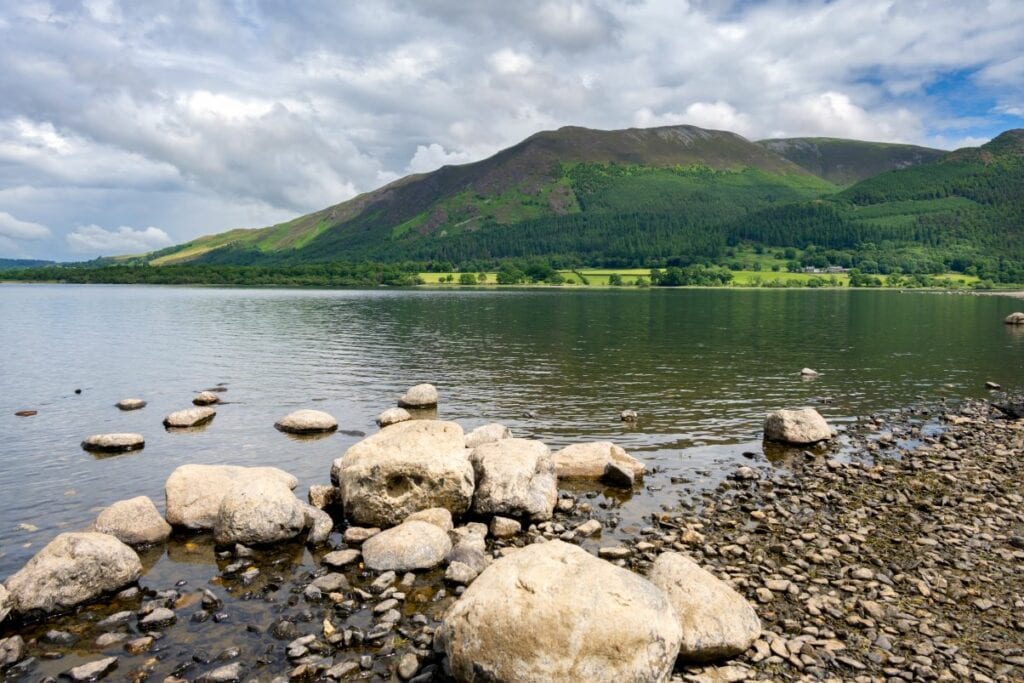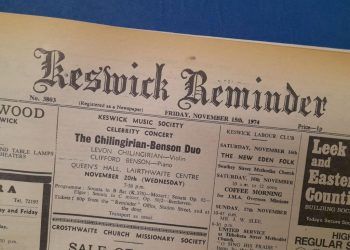
An “explosion” in visitors converging on one of the Lake District’s quietest lakes looks set to come under the microscope this year over fears important habitats are being damaged.
Concerns have been raised at a meeting of national park leaders this week over how Bassenthwaite Lake is being impacted by increasing visitor numbers following lockdown and the post-pandemic staycation boom.
Although it has a western shore next to the A66, it is regarded as being among the least developed of the large lakes and quietest for recreational use.
But on some weekends, there were reports of the protected site being busy with canoeists, paddleboarders and people using lilos, the national park authority committee meeting was told at its latest meeting.
There are also concerns about tourists heading off official pathways to find a beach spot, at what is a protected National Nature Reserve and Site of Special Scientific Interest (SSSI).
Cath Johnson, natural environment adviser to the LDNPA, told a meeting of its park strategy and vision committee that a permit system to manage the numbers of people using the lake had been set up about 20 years ago, but back then fishing was the predominant form of access.
But since Covid, more and more people had been drawn to the Lake District due to blocks on foreign travel. The lake and its surrounds were also increasingly being used as a “local recreational opportunity,” with the numbers of paddleboarders having seen an “explosion,” she said.
While the lake was very quiet at this time of year and sometimes during mid-week even in summer, come the first sunny weekend, the lake would be “teeming” with people again, which had the potential to damage and disturb both the lake and lake shore habitats, said Ms Johnson.
The discussion came as the committee rubber-stamped a new draft management plan for the lake for the next five years. It is expected to go out to public consultation next month.
A report underpinning the new plan stated that since 2020, there had been “increased” public use of the lakeshore, bringing problems with littering and other antisocial behaviour.
The report said: “It is not possible to say at present whether this will be a one-off response to coronavirus travel restrictions or whether visitors whose first experience of Bassenthwaite and other lakes within the national park was in 2020 will return in subsequent years once foreign travel becomes widely available again.
“If there is an increase in visitor numbers in future years there is likely to be a need for greater national park authority ranger input to visitor management within the national nature reserve.”
To that end, the national park plans to carry out a visitor recreation activity survey this year to understand the numbers involved. Where resources allowed, hotspots would be monitored including a count of heads, she said.
Member Jim Jackson said Bassenthwaite had become a hotspot for paddleboarders because it was often windy and it would take time for any new measures such as bye-laws to be introduced.
“People have discovered that it has got a good, consistent wind,” said Mr Jackson.
In places, lake shore habitats and hydracy had started to erode. Not always because of public pressure but also natural erosion and climate change, with high lake levels.
The West Cumbria Rivers Trust are also looking at some natural techniques to protect the site from visitor pressure and trampling in very vulnerable areas, which could include layering willow to create a physical barrier and stop visitors making new tracks towards the lakeshore.
The lake itself supports one of only two populations of vendace known in Britain, which are its rarest freshwater fish and a relic of the ice age; which are also found only in Derwentwater, within the same catchment as Bassenthwaite.
Other fish species include salmon, brown trout, pike and perch, and lamprey. Otters are regularly recorded and more than 70 bird species have been recorded as breeding around Bassenthwaite Lake, including ospreys, and kingfishers, as well as being the second most important wintering site for duck in the Lake District numbers with in excess of 1,000 birds and in the past more than 2,000.
A report showed there is no public right of navigation on Bassenthwaite and all lake users are required to purchase a permit.
The LDNPA plans to expand the area of the National Nature Reserve and then go out to public consultation on its draft five-year management plan, probably in April.








